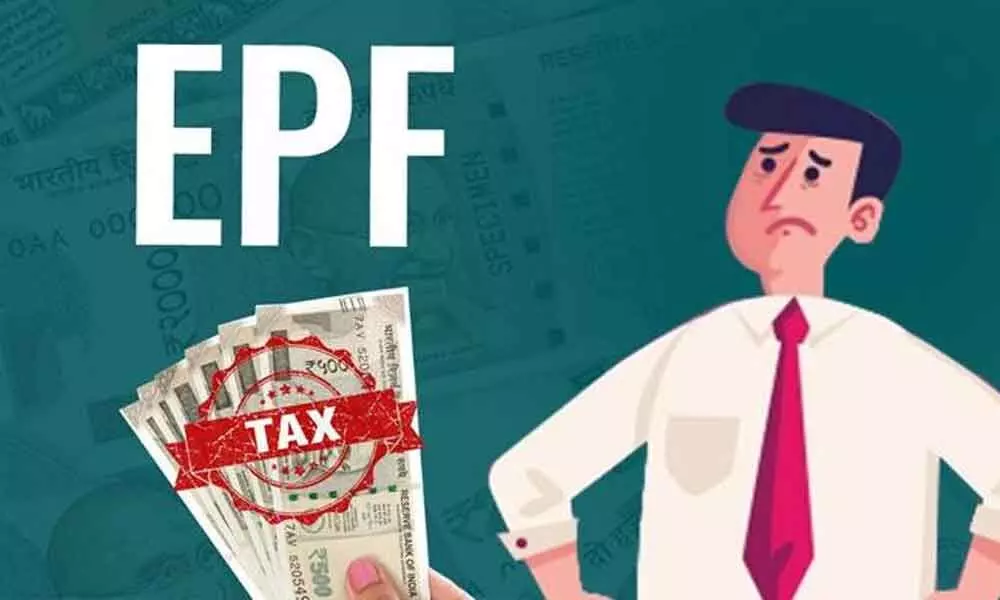Is withdrawal from EPF taxable?
If your EPF is not a recognised provident fund (PF), your withdrawals are taxed, irrespective of the tenure
image for illustrative purpose

I worked in a Travel company for four years and have started my own business after quitting the company. I am planning to withdraw my Provident Fund (PF) and invest in my business. Do they deduct tax on PF withdrawal? - Aparna Sharma, Pune
Contribution to the Employee Provident Fund (EPF) comprises three components-- employers' contribution, employees' contribution and accrued interest. Usually, both employees and employers contribute 12 per cent each.
Employee Provident Fund (EPF) comes under the EEE category. This means contributions, accrued interest and maturity/withdrawal proceeds are fully exempt subject to specific clauses and conditions. The EPF contribution by the employer is tax-free if it is within the statutory limit, which is 12 per cent. Excess of 12 per cent, if any, is taxable in the hands of the employee. The excess amount of contribution, over and above 12 per cent, will be clubbed with 'income from salary.' Some changes took place, and from FY21, employers contributions to the EPF will be taxable in the hands of an employee if the provident fund contribution exceeds Rs7.5 lakh in a financial year. The contributions made by the employer over and above Rs7.5 lakh will be treated as perquisite and clubbed with 'income from salary.' Moreover, the interest income on the provident fund is taxable if the employee's contribution to the provident fund exceeds Rs2.5 lakh in a financial year.
This rule comes into effect from FY22. Interest income on the excess contribution to EPF will be treated as 'Income from other sources' and taxable in the hands of the employee. The length of service with an employer determines the tax liability of the provident fund withdrawal. In the case of employees who completed five years of continuous service and contribution towards the EPF, the EPF withdrawal is tax-free, and there is no TDS applicable at the time of withdrawal of EPF. Five years of continuous service and contribution is mandatory for tax-free EPF withdrawal. Employees' portion of the contribution is not taxable. But, if withdrawn before five years of continuous service, previous deductions under section 80C may attract tax. Withdrawal from EPF account before five years of continuous service attracts TDS at 10 per cent if your EPF withdrawal amount is over and above Rs50,000. There will not be any TDS if the withdrawal amount is less than Rs50,000.
If your EPF is not a recognised provident fund, your withdrawals are taxed, irrespective of the tenure. For the taxability purpose, the tenure or continuous service must be over and above five years or exact five years. There is no grace period if you are short by a few days (for example, 4 years, 11 months and 28 days of continuous service do not qualify as 5 years of continuous service). However, there are certain exceptions to the rule of 5 years of continuous service. EPF withdrawal will get tax exemption if the withdrawal purpose is due to a medical emergency, discontinuation of the employer's business and some reasons beyond the employee's control such as illness, disability, etc.
Can I deposit more than Rs15 lakh in the Senior Citizens' Savings Scheme? V Ranga Rao, Tenali
The Senior Citizens Savings Scheme (SCSS) is the best saving option for those over 60 years of age, senior citizens in India. Senior Citizens Savings Scheme offers the highest interest, safety and tax benefits. Those who retire between 55 years and 60 years are also eligible for the Senior Citizens Savings Scheme. However, such people must open the SCSS account and deposit the money within one month from receiving their retirement benefits. The minimum investment in SCSS is Rs1,000, whilst the maximum deposit limit is Rs15 lakh. To answer your question in simple words, you cannot deposit more than Rs15 lakh. However, there is a solution to your problem. You can open another SCSS in your spouse's name, provided she is a senior citizen. You are also permitted to operate the SCSS account jointly with your spouse. Your spouse also can open a Senior Citizens Savings Scheme account and include you as a joint holder. This way, you can deposit up to Rs 30 lakh in SCSS. The tenure for SCSS is five years which can be extended by three years. Beware of penalties if you want to withdraw SCSS prematurely. Section 194P has been introduced in Budget 2021, which was made applicable from FY22 to enforce the banks and post offices to deduct TDS on senior citizens who are above 75 years and have a pension and interest income.
(The author is a SEBI licensed Research Analyst. The alumnus of the Indian Institute of Foreign Trade (IIFT), he had held leadership roles at National Geographic, Reliance Radio Television Luxembourg, STAR TV, etc)

